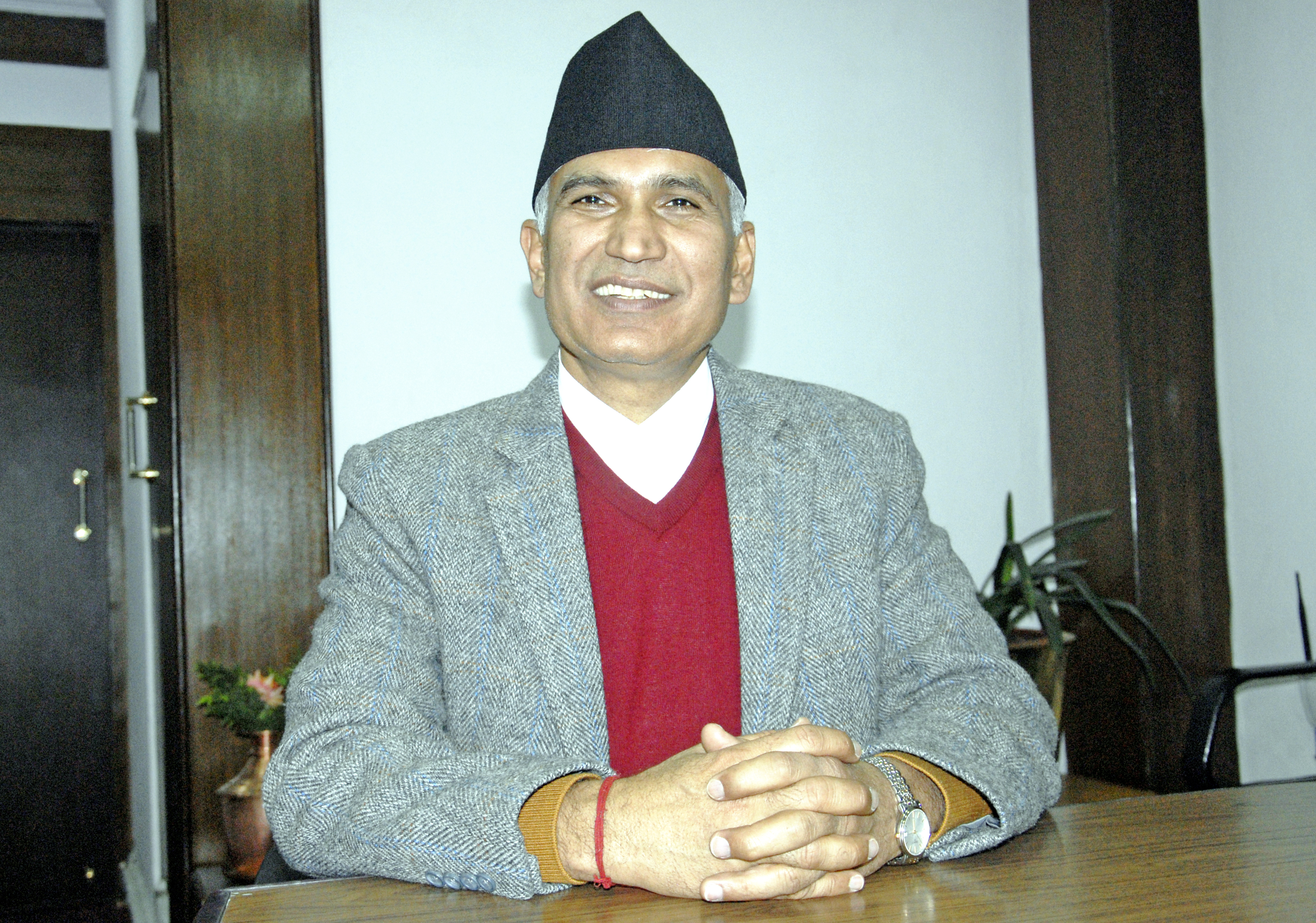FinMin clarifies budget not as expansionary as portrayed
Kathmandu, May 29
At a time when the fiscal budget for 2016-17 has been highly criticised for its distributive approach, Finance Minister Bishnu Prasad Paudel, today, defended that all the allocations made in the budget are targeted, planned and output oriented.
Opposition parties have been criticising that the budget for the upcoming fiscal presented by Minister Paudel in the Legislature-Parliament on Saturday is expansionary and distributive and poses a risk of high inflation.
The fiscal policy has doubled the budget for the Constituency Infrastructure Special Programme for social security allowances and increased grant for village development committees and municipalities, and Constituency Development Programmes. Furthermore, it has also raised the salary of government staffers by 25 per cent.
However, Minister Paudel said that the budget for next fiscal is not as expansionary as portrayed by critics. He stated that the budget has been expanded by just 28 per cent as compared to the current budget. “Share of recurrent expenditure in total budget is less than 0.1 per cent and the capital expenditure has been increased by only 4.5 per cent as compared to previous budget.”
The finance minister accepted that the budget is ambitious to some extent saying, “Since the country has embarked on a path of rapid economic growth since this fiscal as per the spirit of the new constitution which was promulgated in September last year, the traditional thinking and ways of working will not lead the country towards the desired goal of economic prosperity.”
He also clarified that the government has not breached any fiscal discipline to generate resources for budget financing. Target for revenue growth and domestic borrowing has not been increased unnaturally, according to Minister Paudel.
The minister highlighted that the fiscal budget has largely focused on productive capacity enhancement, reconstruction of earthquake ravaged infrastructure, new infrastructure projects like hydro electricity, transmission lines, airports and road connectivity, and aimed to stimulate economic growth to 6.5 per cent in next fiscal from dismal economic growth of 0.77 per cent in this fiscal.
Though it contradicts basic macroeconomic concept, the fiscal policy has tried to keep positive correlation between growth and inflation. It has set a target to control inflation at 7.5 per cent in next fiscal.
Yubaraj Khatiwada, vice chairman of National Planning Commission and one of the architects of fiscal policy 2016-17, said that they will be able to tame the inflation at the desired level in next fiscal by improving the current supply side constraints. “If we analyse the nature of inflation, it is mainly caused by the high food prices and the government has allocated sufficient budget to boost agriculture production in a bid to address the supply side constraints,” he said. “The government also has not made any changes to the consumption taxes, which will also support to control inflation.”
The fiscal budget for 2016-17 has allocated above Rs 30 billion to boost agriculture productivity and livestock farming to address the supply side constraints. It has offered many grant schemes and lowered credit interest rate to lure people to the agriculture sector.






